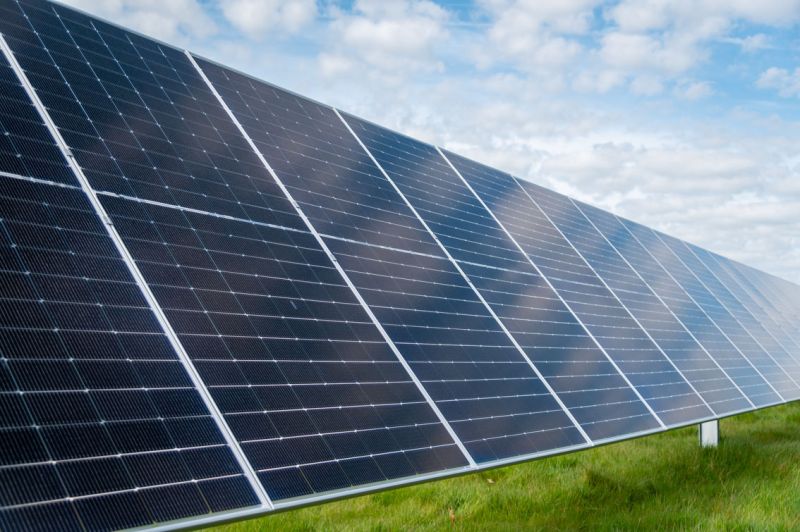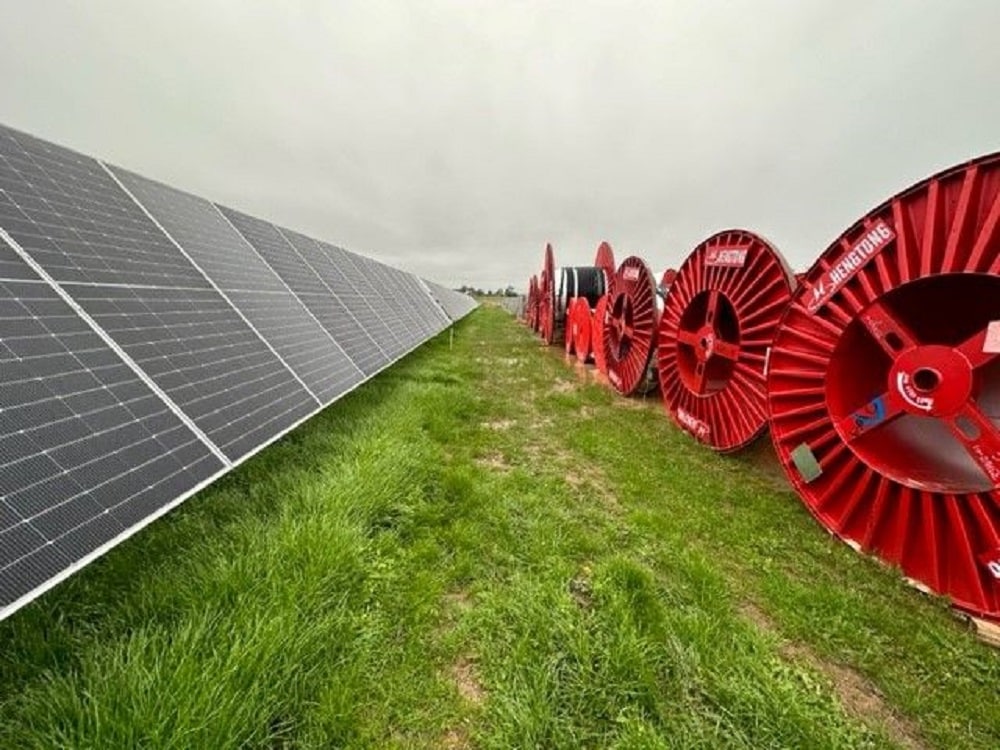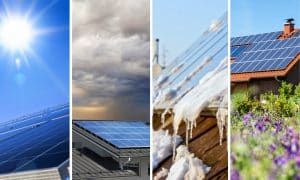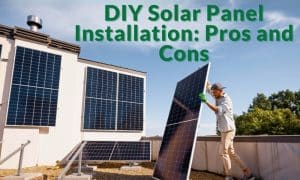In a significant stride toward enhancing Australia’s renewable energy landscape, a subsidiary of CIMIC Group, a global engineering and infrastructure conglomerate, has recently acquired a substantial 300 megawatt-dc (MWdc) solar project in Queensland. This acquisition underscores the nation’s commitment to transitioning energy mix toward cleaner sources and meeting its renewable energy targets. The project’s scope, impact, and implications for Australia’s energy sector warrant a closer look at this development’s details and broader context.
Are you looking to save money on your electricity bills and reduce your carbon footprint? Solar energy is the perfect solution! Energy Matters can help you get up to 3 FREE quotes from pre-qualified and vetted solar firms in your area.
Energy Matters has been a leader in the renewable energy industry since 2005 and has helped over 40,000 Australian households in their journey to energy independence. With Energy Matters, you can be sure you’re getting the best possible deal on solar energy. We only work with reputable solar firms with a proven track record of delivering high-quality solar systems.
The Queensland solar project: An overview
CIMIC Group company Pacific Partnerships has acquired the development rights for the Hopeland Solar Farm in Queensland, the first large-scale solar project to be owned and developed by Pacific Partnerships in the state.
The Hopeland Solar Farm is located in the Western Downs region of Queensland, approximately 200 kilometres west of Brisbane. The project has a 300 megawatt-dc (MWdc) capacity for electricity generation and is expected to generate enough power to supply approximately 100,000 homes.
The acquisition of the Hopeland Solar Farm is a significant milestone for Pacific Partnerships and its growth strategy in the renewable energy sector. The project is expected to create hundreds of jobs during construction and operation and significantly contribute to Queensland’s clean energy target.
Pacific Partnerships Managing Director Simon Nicholls states, “We are thrilled to have finalised this milestone. The solar farm will have the potential to generate enough independent electricity to power approximately 100,000 average-sized homes in Queensland and its strategic location close to the Western Downs sub-station makes it ideal for the co-location of a potential 175MW/350MWh battery energy storage system (BESS).”
Pacific Partnerships is now doing preliminary work as part of the project’s development and has partnered with CIMIC Group to support this stage. The engineering, procurement, and construction will thereafter be managed by Pacific Partnerships, with operations and renewable energy production expected to begin in 2026.
Advancing CIMIC's renewable energy goals
The acquisition of the Hopeland Solar Farm is a further demonstration of CIMIC’s commitment to investing in renewable energy projects. CIMIC is a leading player in the Australian infrastructure market and is committed to delivering sustainable infrastructure solutions that meet the community’s needs.
In addition to the Hopeland Solar Farm, CIMIC is developing several other renewable energy projects in Australia, including the Glenrowan Solar Farm in Victoria and the Rookwood Solar Farm in New South Wales. These projects are all expected to reach a financial close in the coming months.
CIMIC’s investment in renewable energy is part of its broader commitment to sustainability. The company has set a target of reducing its greenhouse gas emissions by 30% by 2030. Developing renewable energy projects is a key part of achieving this target.
The acquisition of the Hopeland Solar Farm is a positive development for the Australian renewable energy sector. The project will help increase the renewable energy supply in Queensland and support the state’s clean energy target. It is also a significant milestone for CIMIC and its growth strategy in the renewable energy sector.
Is solar energy suitable for your business? Solar energy has numerous advantages that are worth investigating. Investing in solar will minimise your operational costs, reduce your company’s carbon footprint, and prepare it for the future. A commercial property with a solar installation is excellent for business.
When installing commercial solar for a company, it is crucial to be informed of all types of federal government solar rebates, incentives and the many benefits these provide, as they may help Australian businesses become future-ready and sustainable for years to come.
Contact us today for up to 3 FREE quotations from commercial solar firms we’ve pre-qualified and vetted for their track record of delivering Australia’s best business solar systems.

Resonate far beyond its immediate scope
Looking ahead, the Queensland Solar Project sets a precedent for future renewable energy initiatives in Australia. Technology advancements drive down costs and increase the efficiency of solar power generation, similar projects may become more financially viable and attract further investment.
The CIMIC Group’s subsidiary’s acquisition of the 250 MW Queensland Solar Project marks a significant stride in Australia’s renewable energy transition. The project’s capacity, strategic location, and alignment with national energy goals make it a pivotal development in the country’s journey toward sustainability. As the project progresses, its economic, environmental, and technological implications will likely resonate far beyond its immediate scope, inspiring further investment and innovation in Australia’s renewable energy sector.
Source&Images: CIMIC
Are solar panels worth it in Brisbane?
Yes. Solar panels are a great way to save money on electricity bills and reduce environmental impact. In Brisbane, the average household can save around $3,000 per year on their electricity bills with solar panels. The payback period for solar panels in Brisbane is typically around 3-5 years. There are also a number of government rebates and incentives available to make solar panels more affordable.
The main factors that affect the cost and savings of solar panels in Brisbane are:
- The size of your solar system
- The efficiency of your solar panels
- The amount of sunlight you receive
- Your electricity usage
If you are considering installing solar panels in Brisbane, getting quotes from a few installers to compare prices and services is important. You should also make sure that you are eligible for all of the available government rebates and incentives.
Overall, solar panels are a great investment for homeowners in Brisbane. They can save you money on your electricity bills, reduce your environmental impact, and increase the value of your home.
Here are some additional things to consider when deciding whether solar panels are worth it for you in Brisbane:
- The lifespan of solar panels is typically 25 years. This means that you will get a long-term return on your investment.
- Solar panels are a renewable energy source, meaning they do not produce emissions contributing to climate change.
- Solar panels can increase the value of your home.
Queensland government solar feed-in tariffs
The Queensland government offers two types of solar feed-in tariffs: the Solar Bonus Scheme and the regional solar feed-in tariff. Both tariffs are subject to a maximum export limit, which varies depending on the customer’s location. Learn more: Solar Feed In Tariff QLD and Australian Solar Feed-in Tariffs Information.
Solar feed-in tariffs can help to offset the cost of installing and operating a solar system and can also help to reduce the amount of electricity that a household or business consumes from the grid. If you are considering installing solar panels, it is important to compare the different feed-in tariffs available to find the best option for your needs.
How to get the Queensland solar rebate
The Queensland solar rebate is a government incentive that discounts the cost of installing solar panels on your home. The rebate is available to most residents of Queensland, and the amount of the rebate depends on the size of your solar system. To be eligible for the rebate, your solar system must be installed by a Clean Energy Council (CEC) accredited installer and your solar panels must be approved by the CEC. You can apply for the rebate online or by mail. Learn more: Queensland Solar Rebates and Incentives 2023.
How much does solar cost in Brisbane and Queensland?
The cost of solar in Queensland can range from $5,000 to $15,000 or more, depending on the size of the system, the type of solar panels and inverter, and the labour costs in your area. However, some government incentives are available to Queenslanders that can help offset the cost of solar, including the Small-scale Renewable Energy Scheme (SRES) rebate and the Queensland Solar Rebate. It is important to get quotes from several solar installers before deciding.
Still can’t afford to switch to solar power?
Still can’t afford to switch to solar power? Are you considering getting solar panels but are currently short on funds? You can still invest wisely, and Energy Matters can help you.
Powow and Energy Matters have teamed up to provide consumers with an alternative to switching to solar power and battery storage.
The biggest obstacle to installing solar and battery storage is typically finance. With Powow’s PPA and VPP, our customers will have a $0 upfront option and financial stability in the uncertain energy market.
Get up to 3 obligation-free quotes by getting in touch with us right away. Find out what payment plan options suit your needs and budget!












































